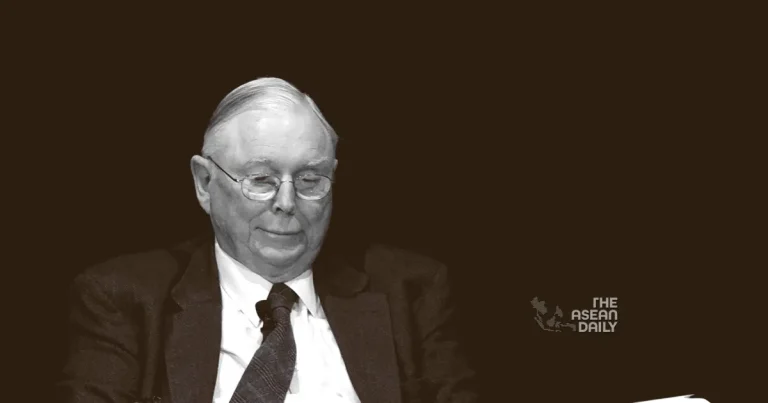29-11-2023 (NEW YORK) Billionaire Charlie Munger, the revered financial luminary whose wealth predates his role as Warren Buffett’s chief confidant at Berkshire Hathaway, has passed away at the age of 99. Munger’s demise occurred on Tuesday, as confirmed by a press release from Berkshire Hathaway. The conglomerate, acting on information from Munger’s family, reported that he peacefully passed away in a California hospital on the morning of the announcement. Notably, Munger would have celebrated his 100th birthday on New Year’s Day.
In an official statement, Warren Buffett acknowledged Munger’s indispensable contributions, stating, “Berkshire Hathaway could not have been built to its present status without Charlie’s inspiration, wisdom, and participation.”
Apart from serving as Berkshire’s vice chairman, Munger held various roles, including real estate attorney, chairman, and publisher of the Daily Journal Corp. He was also a board member of Costco, a philanthropist, and an architect.
As of early 2023, Munger’s fortune was estimated at $2.3 billion, a considerable sum though notably smaller than Buffett’s estimated wealth exceeding $100 billion.
Munger, in a key moment during Berkshire’s 2021 annual shareholder meeting, unintentionally revealed a guarded secret, suggesting that Vice Chairman Greg Abel would “keep the culture” post-Buffett era.
The investing maestro, recognized for wearing thick glasses and having lost his left eye in 1980 due to complications from cataract surgery, held the positions of chairman and CEO of Wesco Financial from 1984 to 2011. Berkshire Hathaway subsequently acquired the remaining shares of the Pasadena-based insurance and investment company.
Buffett credited Munger with steering his investment strategy towards higher-quality but underpriced companies, moving away from a focus on troubled companies at low prices. One illustrative example was Munger persuading Buffett to approve the purchase of See’s Candies for $25 million in 1972, a move that yielded over $2 billion in sales for Berkshire.
Munger often played the role of the serious counterpart to Buffett’s jovial commentary at Berkshire annual meetings. His investment philosophy, encapsulated in the “lollapalooza effect,” emphasized the convergence of factors driving investment psychology.
Born on January 1, 1924, in Omaha, Munger’s early life saw him working at Buffett’s grandfather’s grocery store. He enlisted in the Army Air Corps in 1943 and, after marrying in 1945, graduated magna cum laude from Harvard Law School in 1948. Munger founded the law firm Munger, Tolles & Olson in 1962 and simultaneously managed investments at the hedge fund Wheeler, Munger & Co., closing it in 1975.
Returning to Omaha in 1959, Munger, at age 35, closed his late father’s legal practice, leading to his introduction to Buffett. The two developed a lifelong partnership, sharing a remarkable alignment of thinking.
Munger’s philanthropic endeavors included substantial donations to educational institutions like the University of Michigan, Stanford University, and Harvard Law School. He was also an unconventional architect, ensuring gender-appropriate facilities at Los Angeles’ Harvard-Westlake prep school.
In a 2019 interview, Munger attributed the secret to a long and happy life to simple principles: avoiding envy and resentment, managing finances sensibly, maintaining a cheerful disposition, dealing with reliable individuals, and fulfilling responsibilities. Charlie Munger is remembered not just for his financial acumen but also for his wit, wisdom, and enduring impact on Berkshire Hathaway.




